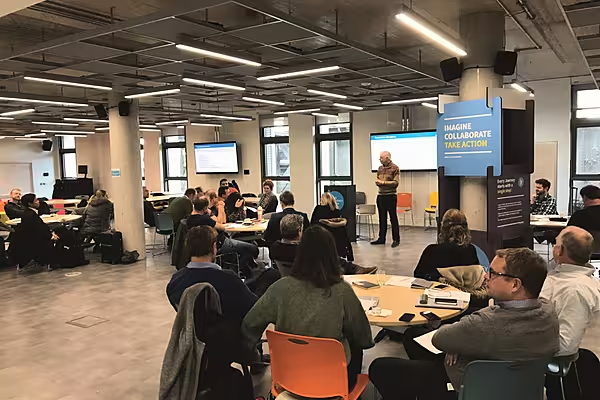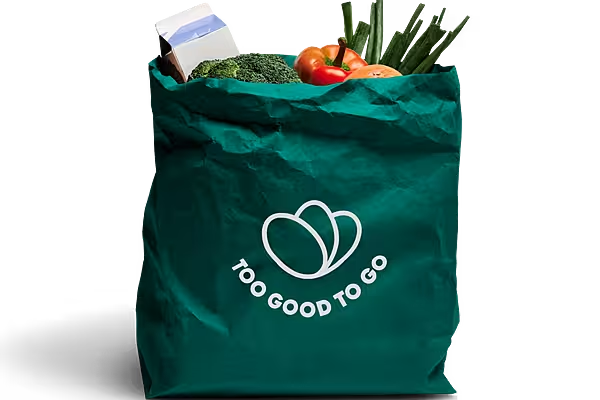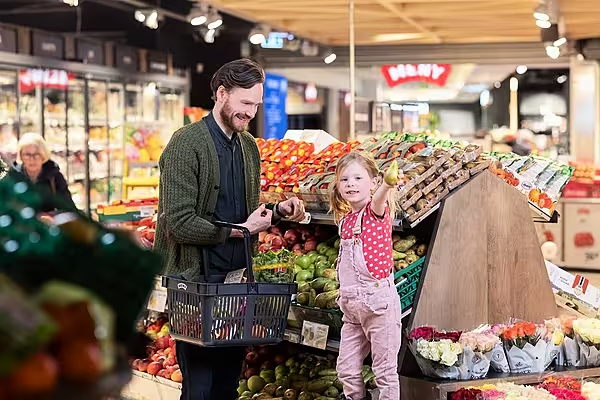The ECR Food Waste Working Group has announced details of its latest series of virtual group sessions, taking place on 19 and 20 May, examining how food surplus can be prevented or managed efficiently, ensuring that the least possible amount escapes the food chain.
In previous sessions, the group has discussed prompted expiry date apps, best practice when it comes to managing banana waste, dynamic assortments and centralised ordering, along with how food waste is managed in online grocery.
Retailers, producers and academics that are interested in attending can register here.
The ECR Food Waste Working Group sessions line up for May include:
Wednesday May 19th
Session 1: KPI's - where in the business does the budget for food waste and markdown sit?
There is seemingly no consensus amongst large organised retailers where the budget for food waste and markdowns should sit, and what each function, from buyers, to store operations, to supply chain, to loss prevention, should be held accountable for in terms of metrics, budgets and key performance indicators.
In some organisations, the budget will sit with the commercial and buying organisation, and stores are held to account for the routines, such as rotating products, and markdown compliance. In other organisations, where stores hold responsibilities for ordering fresh products, and there is a large in-store production business, stores are held to account for the waste and markdown budget, with the buyer, supply chain and other functions accountable for actions that can support the store achieve their waste and markdown targets.
In this session, which will kick off with a talk from Elizabeth Harris from Morrisons, the group will discuss this theme and will share the latest thinking and any evidence on changes in the values of food waste and markdowns that they have experienced as their organisation has transitioned from changing the accountability from one function to another.
Session 2: Machine Learning to Improve Store Ordering
In an earlier meeting this year, the working group heard from Franprix on the benefits of centralising the store ordering process using multiple data inputs and centrally agreed targets on OSA and Waste, and dynamic assortment planning to cut the items that create high food waste.
In this session, it will hear from Ramesh Reddy at Fresh Thyme, who will discuss the company's learnings from the introduction of machine learning-based store-ordering systems, and the benefits this has delivered to its sales and waste performances.
Session 3: True Cost of Food Waste Model
Do organisations really know whether they can actually afford zero food waste? To help inform the question, ECR has commissioned research into the True Cost of Food Waste with Professor Lisa Jack of the University of Portsmouth, and building on her research with the group on the true cost of returns from online sales.
Based on inputs from case study retailers, she will introduce to the group a new costing model that aims to put a cost to the vast array of activities associated with managing the exit of surplus food.
Thursday May 20th
Session 4: Woolworths Australia Case Study - Towards Zero Food Waste
In a previous session, the group heard from Sonae and its three year journey on waste, and discovered some of the key interventions that the retailer introduced, and their impact.
In this session, Woolworths Australia will share its journey, the key milestones, the lessons along the way and the future choices ahead of the retailer as it seeks to deliver a zero food waste target.
Session 5: Smart Label Use Case at X5
An acknowledged global truth in food retailing is that the information carried on the cases of, and the individual fresh items to communicate the expiry date and messaging on when the item is 'best' are a) small, b) difficult to locate, c) hard to read and d) inevitably sow confusion, especially when there are two dates – the 'best before' date and the 'use by' date. To this end, retailers have looked to remove information on expiry dates on items such as produce where common sense can be applied.
Taking another approach (and a finalist at the ECR Innovation Challenge in July 2019) is Evigence, a new start up bringing to the market a new smart label that is based on time and temperature. In this session, Russia's X5 Retail Group will share its journey to date using these smart labels, outline the business case, and share future next steps.
Session 6: Tesco and Olio Success Story
Over the last five years, there has been significant innovation in the available strategies for retailers to keep surplus food within the human and animal food chain. However, and despite all these innovations, many retailers still find themselves with surplus food that they would then need to donate, if possible, and at a cost, to animal feed or energy conversion.
To fill this gap, and to ensure that the surplus food remains in the human food chain, Tesco formed a partnership with Olio, to design and launch an innovative new way to distribute surplus food to the local community.
In this session, Ben Dingley (Tesco) and Saasha Celestial-One (Olio) will share their journey, the key milestones, the current status and results, and the next steps in their journey plan.
Click here to register for the ECR Food Waste Working Group session.
© 2021 European Supermarket Magazine. Article by Stephen Wynne-Jones. For more Supply Chain news, click here. Click subscribe to sign up to ESM: European Supermarket Magazine.














